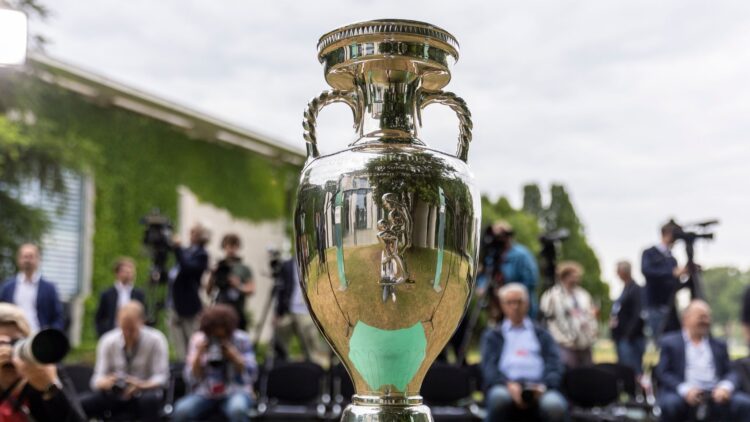By Shaun Murphy-
The joint bid to host the men’s European Championship in 2028 will proceed unopposed. UEFA announced on Wednesday that Turkey, which had initially expressed interest in hosting the tournament, has withdrawn its bid, paving the way for the UK and Ireland to take center stage in European football.
This news had been anticipated for some time, with the UK and Ireland emerging as strong contenders for Euro 2028, particularly after the English Football Association (FA) signaled its decision not to bid for the hosting rights of the men’s FIFA World Cup in 2030.
UEFA had been keen on entrusting a mature football market with the responsibility of hosting Euro 2028, as they aimed to recover revenues lost due to the disruptions caused by the COVID-19 pandemic during the 2021 tournament.
Turkey’s initial expressions of interest in hosting both Euro 2028 and the 2032 edition had added complexity to the bidding process. However, Turkey has now chosen to focus its efforts on a joint bid with Italy to host Euro 2032.
A Five-Nation Hosting Extravaganza
The Euro 2028 tournament is set to be a grand affair, with matches contested by 24 teams across the United Kingdom and the Republic of Ireland.
A total of 10 venues have been proposed across these five host countries, including some iconic stadiums.
England is poised to play a significant role as six of the proposed venues will be located within its borders.
These include Villa Park, St James’ Park, and Everton’s Bramley Moore Dock stadium, which is currently under construction.
Completing the lineup are Hampden Park in Glasgow, the Principality Stadium in Cardiff, Dublin’s Aviva Stadium, and Belfast’s Casement Park.
Qualification Challenges and Guarantees
While preparations for Euro 2028 are in full swing, one aspect of concern remains the qualification process for the tournament. UEFA typically reserves qualifying places for host nations, a tradition upheld for previous hosts like Poland and Ukraine in 2012.
However, UEFA seems reluctant to extend this privilege to all five host nations.
This decision has raised concerns that some of the host nations could potentially miss out on participating in their own tournament. In response, UEFA is expected to draft regulations aimed at minimizing this risk before the qualification process begins in 2026.
These regulations will seek to balance the need for host nations to participate while ensuring the overall competitiveness of the tournament.
Home Nations’ Recent Euro 2020 Stint
The recent experience of hosting Euro 2020 has provided a taste of what’s to come for the UK and Ireland.
England and Scotland played host to matches during the delayed Euro 2020 tournament, with Wembley and Hampden Park serving as key venues.
The two stadiums jointly hosted six group-stage matches, while Wembley also took on the role of hosting five knockout stage matches, including the semi-final between England and Denmark and the final between England and Italy.
However, the final was marred by incidents of crowd disorder, leading UEFA to take action against the English national team. England was subsequently ordered to play their next qualifying fixture behind closed doors.
Despite these issues, UEFA President Aleksander Ceferin maintained a positive outlook, emphasizing that such incidents could have occurred anywhere and praising London as a great hub for football.
A Pioneering Bid for Football’s Future
The joint UK and Ireland bid for Euro 2028 has been hailed as pioneering for the world of football. FA Chair Debbie Hewitt described it as a groundbreaking initiative that would benefit the domestic game immensely.
Hewitt emphasized the bid’s focus on growing football, connecting with new fans, players, and volunteers, and investing in grassroots football development across the five associations.
The goal is for Euro 2028 to act as a catalyst for a new and sustainable era for football, spanning from grassroots initiatives to the pinnacle of the European game.
Looking Ahead to 2028
. This unopposed bid not only reinforces the reputation of these nations as football powerhouses but also signifies their commitment to contributing to the global footballing community.
While the official announcement and approval of the hosting rights are yet to come, the prospect of hosting one of the most prestigious football tournaments in the world is a testament to the passion and dedication that both the UK and Ireland have for the beautiful game.
In the years leading up to Euro 2028, the host nations will undoubtedly be busy preparing to welcome the world to their shores, making the tournament a celebration of football, unity, and the shared love for the sport.




